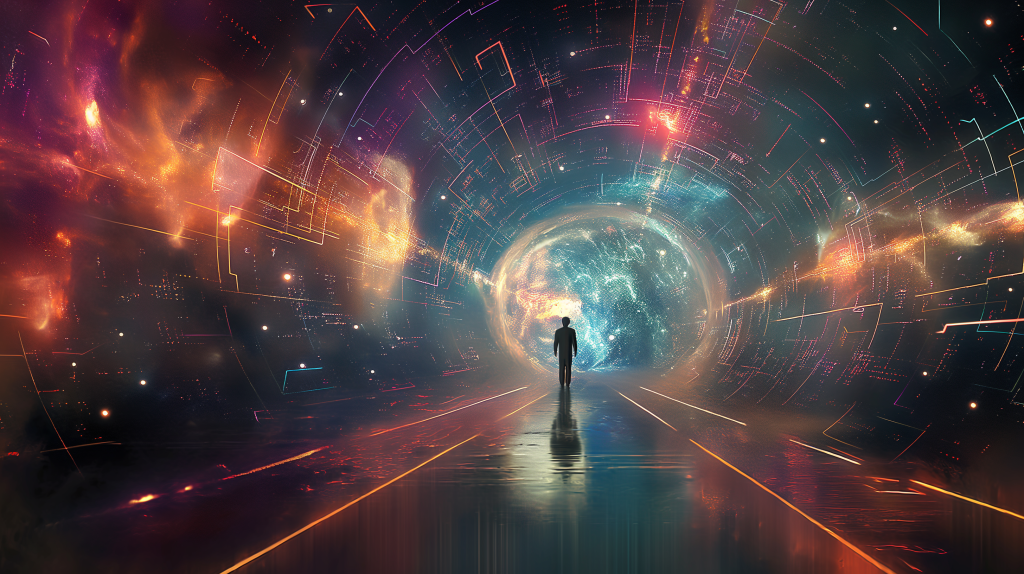Deciphering the Matrix: Two Perspectives, One Fascinating Debate
In an era where the boundaries between reality and virtuality blur more than ever, two significant contributions shed intriguing light on the potential truth behind our understanding of the universe. On one side, the renowned AI pioneer Jürgen Schmidhuber leads us into the depths of the simulation theory in a gripping podcast conversation. On the other side, the YouTube channel “Entropy – Wissenschaft Schnell Erklärt” presents a concise summary of the key concepts of this provocative hypothesis.
Schmidhuber, one of the leading minds in the field of Artificial Intelligence, raises the question of whether our universe could be nothing more than a complex simulation. His discussion on the advancements in technology and the possibility of creating complex simulations prompts us to contemplate the limits of our own reality. Yet, as he sheds light on the potential computability of the universe, he also poses questions that delve deep into our conceptions of existence and consciousness.
He argues that the combination of neural networks and powerful GPUs enables the creation of virtual realities hardly distinguishable from the real world. But what does it mean if our reality is controlled by algorithms? And how can we discern the differences between a simulated world and our own reality? Drawing parallels to mathematical concepts like Pi, Schmidhuber demonstrates how seemingly random events can be described by short programs. He discusses the idea of a “great programmer” who would use the most efficient algorithm to simulate the universe.
At the same time, the YouTube channel “Entropy – Wissenschaft Schnell Erklärt” provides a concise presentation of the key concepts of the simulation theory. From information theory to infodynamics, the fundamental ideas underlying the hypothesis are elucidated. It becomes clear that the idea of a simulated reality is not new. Philosophers and thinkers have long speculated whether our world is truly as it seems. The Matrix theory is not only a product of pop culture but has also caught the attention of renowned thinkers like Elon Musk and Nick Bostrom. Musk has even suggested that the likelihood of living in a simulated reality is “one in a billion.” Bostrom’s trilemma, which describes various scenarios for the simulation theory, is illuminated here as well as David Kipping’s Bayesian analysis, which examines the probability of living in a simulated reality.
However, as renowned thinkers discuss the Matrix theory, we delve into a world full of possibilities. Perhaps our reality is nothing more than a complex network of data, controlled by invisible forces. Or maybe we are the creators of our own simulation, unaware that we live in a world we ourselves have created.
The debate over the simulation theory goes far beyond mere speculation. In fact, there are a plethora of theories and ideas that support this hypothesis. The idea that our universe could be just one of many simulated realities is fascinating but also frightening. For if we do indeed live in a simulation, what does that mean for our understanding of reality and existence? Are we nothing more than puppets in a digital theater production? Or is there a deeper meaning behind the pixels and codes that seem to shape our world?
As we ponder these questions, new horizons of speculation open up. Perhaps there is even more to discover, even more questions to ask. Are you ready to question your own reality and decipher the secrets of the Matrix? Click on the links and get ready for a journey that could change your understanding of the universe forever. For in a world full of possibilities, nothing seems impossible.
Links:
https://omr.com/de/podcast
https://www.youtube.com/channel/UC5dBZm6ztKizdUnN7Puz3QQ

